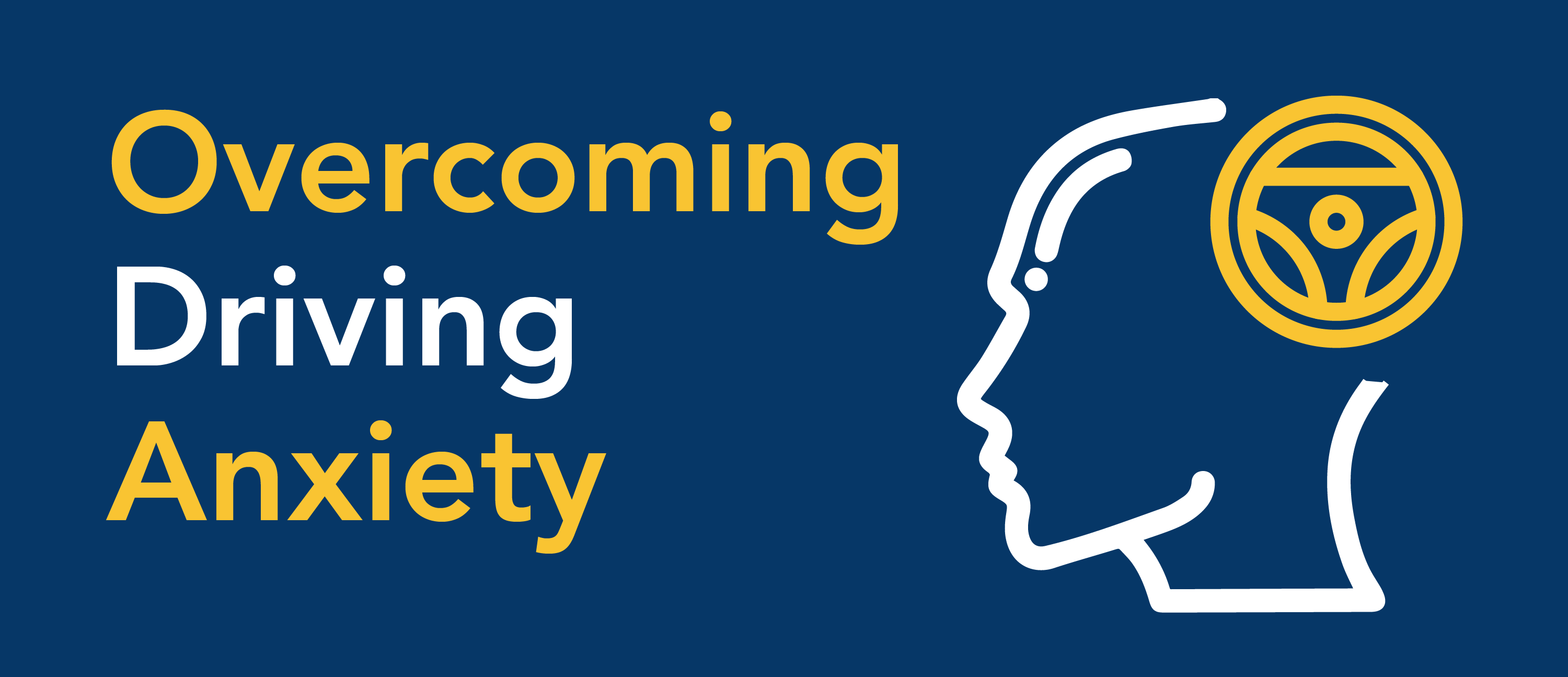How to Overcome Driving Anxiety
Driving anxiety is common in people who have had bad experiences or for those who are new at driving in general. Here we’ll go over what some of the possible causes of driving anxiety are, ways to cope with it, and suggestions on how to seek help.
Common Causes of Driving Anxiety
While everybody is different and has their own experiences, there are some commonalities when it comes to identifying causes of driving anxiety. Some of the most common causes of driving anxiety include:
Past experiences
If you’ve been in a car crash before, especially an injurious or horrific one, then there’s a chance that you have some sort of underlying trauma associated with the act of driving. Even just getting into a car can trigger several anxiety-related episodes including panic attacks, post-traumatic stress disorder, etc. In fact, experts estimate, “Rates of PTSD and other psychopathologies like acute stress reactions, adjustment disorders or specific (isolated) phobias following a traffic crash range from 8 to over 30%.” If you’ve been involved in a car crash, it would be a good idea to talk about it with a therapist just to ensure your mental health is not at risk.
Being outside of your comfort zone
Driving outside of your comfort zone, such as in a new location, can be overwhelming to some, especially to new drivers. For instance, maybe you’re driving through a city you’ve never been to and traffic is congested and drivers are more aggressive than you’re used to. Or perhaps you’re driving through mountainous areas with winding roads along cliff sides. Or maybe you’re driving through adverse weather such as a torrential downpour or blizzard for the first time. No matter the situation, driving outside of our comfort zones can leave room for anxiety to creep in.
Being an anxious person in general
General anxiety is no laughing matter because it seeps into every aspect of your life. Being anxious, especially in the car, can leave you feeling overwhelmed and create unwanted feelings such as restlessness, fatigue, difficulty concentrating, tension in the neck and back, or being overall irritable and worried while on the road. Anxious people tend to think about the worst aspects of driving at all times — fatalities, concern of hitting someone or something, etc. And it can impact their emotional wellbeing and could even adversely affect their driving habits.
Ways to Cope with Driving Anxiety
Note: if you ever feel that you are having a panic attack or other form of anxious episode, pull over immediately until the fear subsides. Anxiety attacks can cause blurred vision and other physical symptoms that put you at risk of harming yourself or others while on the road.
Cognitive behavioral therapy: One of the most surefire ways you can treat your driving anxiety is by visiting a therapist. Because we are all different and have varied life experiences, a therapist will be able to help you identify more accurately the roots of your anxiety and how to address it. Cognitive behavioral therapy is an individualized approach that develops personal coping mechanisms to help you become a more confident person both behind the wheel and in general.
Relaxation techniques: If you have milder signs of driving anxiety, there are several relaxation techniques you can use to cope with it including:
- Deep breathing
- Progressive muscle relaxation
- Meditation
- Autogenic training
- Listening to relaxing music
Introspection: Sit down and ask yourself some hard-hitting questions and do NOT be afraid to be honest with the answers, as it can be very therapeutic and help you minimize your anxiety. Ask yourself why am I so anxious behind the wheel? Are there common situations that trigger the anxiety? When do my symptoms subside?
Sometimes if we realize where our anxiety comes from, it can tell us how to fix it. Perhaps it can be fixed in small doses of exposure therapy. Other times, we may need to take bigger steps and hire a professional psychologist, psychiatrist, or therapist that can design an individualized treatment regimen that can include medication or psychotherapy.
Whatever your situation, a professional can help you get on the road with no fear!
Stay Safe on the Road with Top Driver
Top Driver’s top priority is to equip you with the knowledge and experience needed to stay safe on the road and reduce anxiety surrounding driving.
With more than 40 locations throughout Illinois, Michigan, and Ohio, Top Driver is your best resource for driver education, providing over 21,000 hours of in-vehicle training and 15,000 hours of classes each year. We have a variety of teen programs for new drivers, adult refresher courses, and remedial courses.
Top Driver is also going the extra mile to ensure a safe learning space for our students and instructors by providing remote classroom education opportunities and implementing a coronavirus vehicle sanitization process.
Call 1 (800) 374-8373 or enroll online today!
